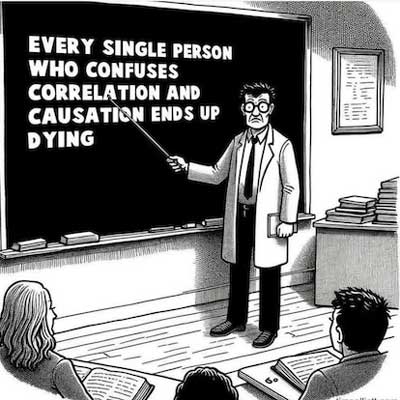I’m often quizzed about the most common challenge in making good programming decisions. My response? Understanding the difference between CORRELATION and CAUSATION. Particularly as it relates to reacting to ratings.
We added a new jingle package and our ratings went up!
We ran that new promotion and our ratings went down.

Our biases cause us to value things we know, mostly things inside the radio station, and to undervalue what we don’t know, mostly things outside the station.
I worked with a manager that was so reactive to the ratings that he would change the deejays shifts based upon that daypart’s most recent ratings. I’M NOT MAKING THIS UP, as Dave Barry would say. Needless to say his behavior created a culture of instability and low morale with the air staff.
“Every time we see a link between an event or action with another, what comes to mind is that the event or action has caused the other.” That’s causation.
On the other hand…
“Correlation is an action or occurrence that can be linked to another,” but “linking one thing with another does not always prove that the result has been caused by the other.”
www.differencebetween.net
In making programming decisions consider… the three most essential factors are:
- what people love about your station
- they don’t love (that is, what causes tune out)
- how your marketing and programming can be designed to attract to new listeners
Short terms ratings can’t guide you on any of these factors.
Strategic market research that measures your station’s brand images and the preferences of your fans and potential listeners is the best foundation for decision making.
Successful radio stations strive not for answers than are simple, but answers that are true.
But, darn it, that demands effort and thought.
